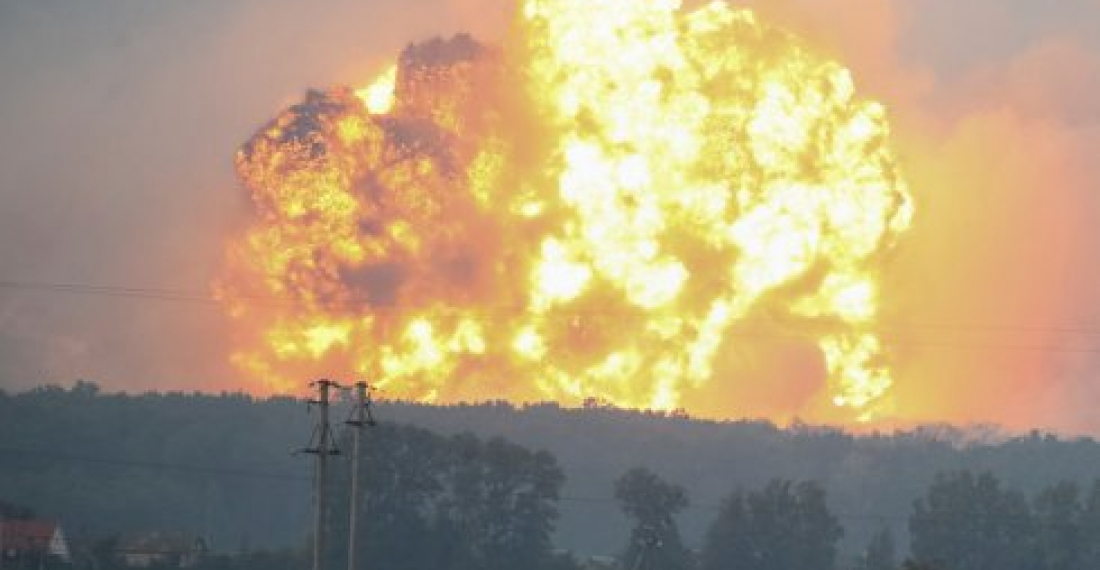More than ten thousand people were evacuated during the night following an explosion at an ammunition depot in Ukraine's Chernigov Region, resulting in a fire. The General Staff of the Ukrainain Armed Forces confirmed the incident on its official Facebook page on Tuesday (9 October).
"At 3:30am [local time], we received a report from the head of the 6th arsenal that an explosition occured on technical territory near the settlement of Ichnya in the Chernigov Region," the General Staff said.
People are being evacuated. An operational group was dispatched to the site of the explosion. "Appropriate restrictive measure are being introduced in the Chernigov Region and along it borders," the General Staff said.
About 10,000 people have been evacuated from the danger zone in the area close to the burning ammunition depot in Ukraine's northern Chernigov Region, the State Emergency Service of Ukraine reported on Tuesday.
According to Ukraine's Deputy Interior Minister Sergei Yarovoi, there are no immediate reports of casualties. "The emergency response center has been deployed [to the area]. There is no information about any victims," he said in a statement posted on the ministry's website.
source: commonspace.eu with agencies







